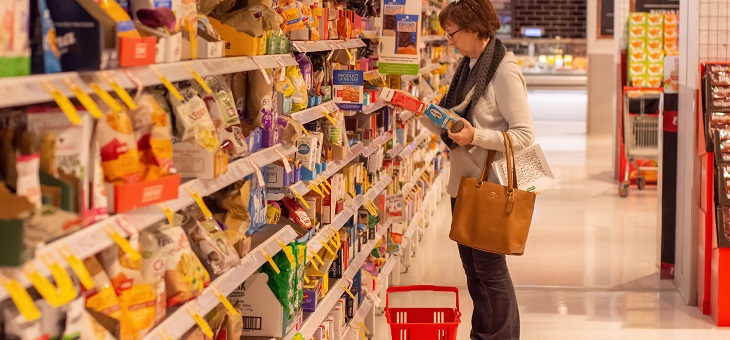The average grocery shopper could save between $1500 and $2500 a year simply by switching supermarkets, a report reveals.
It says those savings could be made by switching to German retailing giant Aldi – Roy Morgan’s best supermarket for a second successive year.
But data also indicates very few people make that change.
Aldi’s figures reveal that only 9 per cent of shoppers have switched supermarkets in an effort to save money.
Given the potential savings, why do most shoppers stay loyal to their regular supermarket? What is it that draws them back to the supermarket they’ve been going to for years, even when they know there’s a cheaper option?
Read: Coles teams up with start-up to deliver groceries by drone
There are several possibilities. The first is that Aldi does not offer online shopping, as do supermarket giants Coles and Woolworths. With COVID still very much a part of our lives, many who switched to online shopping during the pandemic have stuck to that method of shopping.
Many of those shoppers are finding they’re making savings in other ways. Impulse buying, for instance, is virtually non-existent when shopping online. There are no mouth-watering blocks of chocolate tempting you at the end of aisles and at the checkout.
Online shopping also saves time, which could translate to savings for those who use that time wisely. That aspect is a little harder to quantify, as some online shoppers (and I put up my hand here) will use that saved time to watch an extra episode of their current favourite show.
Read: Save with these tips to make groceries last longer
Another reason for not making the change is brand loyalty. This could be genuine loyalty, based on customers’ good experiences at a particular supermarket, or it might be rewards based.
Loyalty cards that offer savings or petrol discounts once you’ve spent a certain amount are very effective. Given the current sky-high oil prices, it’s an irresistible carrot for many. Aldi does not have a loyalty card system in place.
A further factor is a simple reluctance to embrace change itself. Most humans are creatures of habit. Once we get into a routine, many are reluctant to change it.
And getting into a shopping routine can bring its own benefits. If you frequent the same supermarket over a period of time, you will get to know which items are in which location.
Read: Curb your enthusiasm – a guide to winding back online shopping
As a result, you might reach a point where, as you push your trolley up and down each aisle, you grab your regular items without even realising it, as your mind wanders to the other priorities in your life.
Why change supermarkets when that means you’ll have to relearn where items are in a new store? And if an identical item is not available in a new store, is it worth the hassle of trying to work out an equivalent item?
Many would say no, even if they’re aware of the potential savings.
But the Aldi report suggesting that significant savings can be made is certainly food for thought. And if we make the switch, it might well be cheaper food for thought.
If you enjoy our content, don’t keep it to yourself. Share our free eNews with your friends and encourage them to sign up.

